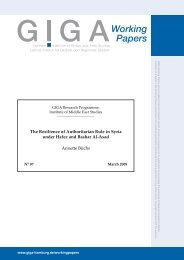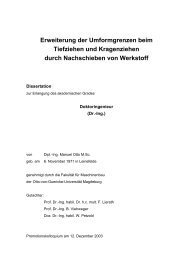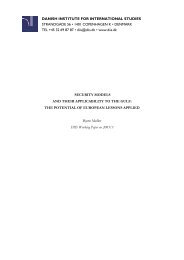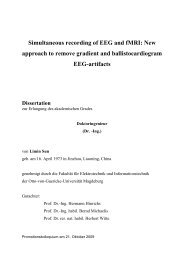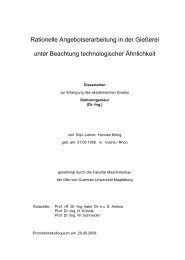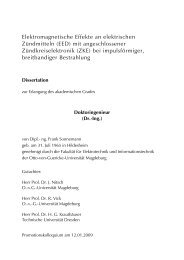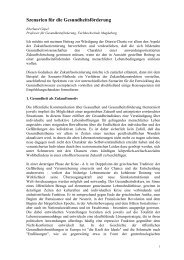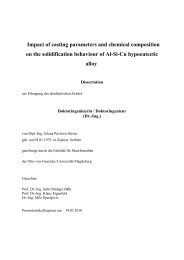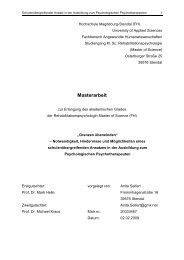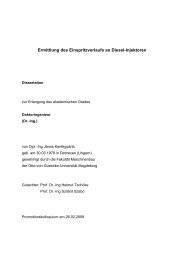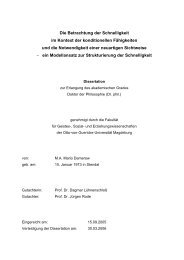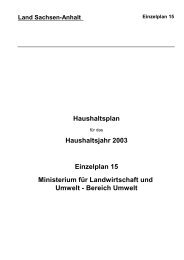Chapter 1
Chapter 1
Chapter 1
You also want an ePaper? Increase the reach of your titles
YUMPU automatically turns print PDFs into web optimized ePapers that Google loves.
price/earnings ratio of about 25 in the Tunisian stock mar- panies. The industry has long been subject to restrictive regket<br />
is high compared to average ratios in other emerging ulations that have limited its ability to engage in technical risk<br />
markets which range from 15 to 20. The most recent surge and financial management. Several companies (public and<br />
in the stock market (end 1993-95) has been due primarily private) report cumulative deficits that exceed their authoto<br />
a 2 percent drop in the money market in November 1993 rized capital. In fact, the capital shortfalls of these companies<br />
and a similar drop in term deposit rates, driving investors to exceed the capital of all the other companies so that the indusseek<br />
higher returns on the small stock market. try as a whole suffers from negative equity. The Government<br />
Two reforms that the Government should consider are: is working to prepare and implement a program that would<br />
(1) speeding up the privatization program to increase the reduce the extensive cross subsidization on types of insursupply<br />
of stock offerings, thereby helping to satisfy the excess ance, revise regulations and strengthen supervision, restrucdemand<br />
that is now pushing stock prices up and (2) remov- ture the capital-deficient companies, modernize financial<br />
ing the fiscal distortion that now exists in the form of the size- management, and improve the financial condition and pubable<br />
tax benefit for investors, which encourages investors to lic image of the insurance industry. The Government is also<br />
oversubscribe to initial stock offerings and thereby help to beginning to undertake fundamental reforms of the pension<br />
push the prices up. 9 These reforms would serve to restore a system, by improving the returns on investments of the social<br />
greater balance between supply and demand in the stock security funds and by taking measures to redefine pension<br />
market. But the fact remains that in Tunisia, as in many other benefits and possibly introducing individual capitalization<br />
developing countries with emerging markets, many of the accounts. The objective is to provide basic coverage through<br />
family-owned companies are reluctant to go public. compulsory social security contributions, while additional<br />
coverage could be provided through the insurance industry.<br />
The bond market These reforms in the insurance and social security systems<br />
will have a substantial impact on the availability of instru-<br />
The bond market (primary issue) has also grown rapidly over<br />
the past four years, from total bond issues of TD 176 million<br />
ments and long-term resources for the financial system.<br />
in 1991 to TD 322 million in 1994, as a result of several factors.<br />
On the demand side, tax incentives have prompted the<br />
Conclusions<br />
creation of open-end mutual funds (SICAVs), which are The implementation of competition policies-trade, price<br />
investing in bonds, stocks and T-bills. On the supply side, and investment liberalization, the integration of FDI with<br />
private companies no longer require prior authorization (not the domestic economy, and the deregulation of numerous<br />
automatic under previous regulations) from the Treasury on state controlled activities-is critical to ensuring the future<br />
the timing and pricing of bond issues, although they still competitiveness of the Tunisian economy. The authorities<br />
require a bank guarantee. This gives rise to the risk of moral are strengthening the role of market forces throughout the<br />
hazard, as banks may be willing to guarantee the bond issue economy, but the removal of the controls that remain and a<br />
of a mediocre client, thereby transferring its on-balance sheet more rigorous application of the legal changes recently put<br />
risk to off-balance sheet, but the Government intends to<br />
eliminate this requirement within the next two years when<br />
in place pose major challenges.<br />
independent rating agencies will have been established. An open, competitive economy<br />
Insurance and pension funds Tunisia's membership in the GATT, the WTO, the Maghreb<br />
Customs Union, and an FTA with the EU should ensure<br />
Government authorities are now turning their attention to Tunisia's continued outward orientation. The implementainsurance<br />
and pension fund reform. With total assets of TD tion of trade reforms will be influenced by the pace of com-<br />
600 million in 1992, the insurance industry is important for mercial integration with the EU. The costs of adjustment<br />
the modernization of the financial system and the develop- occur only once, while the benefits of free trade with the<br />
ment of capital markets. About half of the insurance sector is EU are large and recur annually, provided the remaining<br />
state-owned, with the remainder joint stock or mutual com- trade barriers are reduced in the short term (less than five<br />
42 TUNIsIAs GLOBAL INTEGRAION AND SUSTAINABLE DEvELOPMENr. STRATEGIC CHOICES FOR THE 21ST CENTuRY



